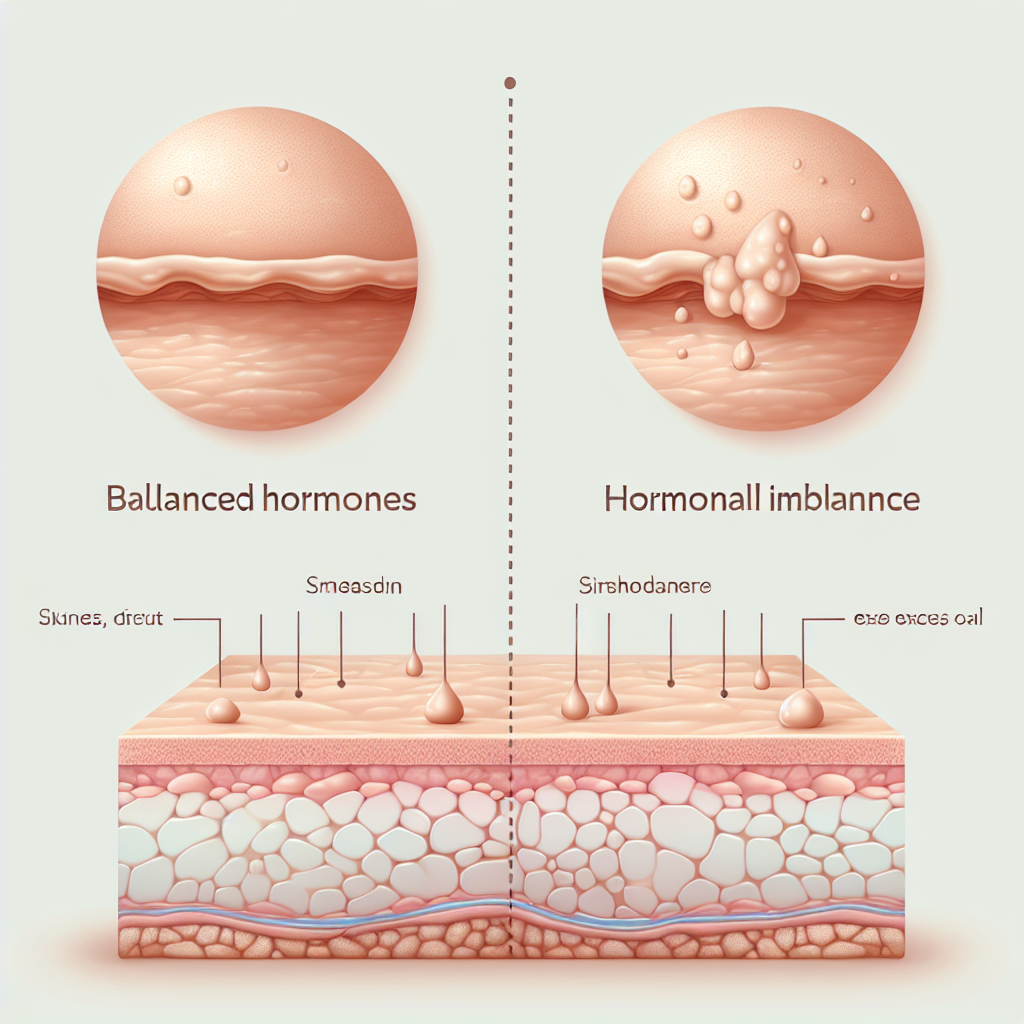Hormones are the body’s chemical messengers, and their influence on our skin health is profound. These potent substances orchestrate a myriad of processes, from growth and metabolism to mood and reproduction. When it comes to the skin, hormones can be both a blessing and a curse, playing a role in its rejuvenation and, conversely, in common skin problems.
Understanding the complex relationship between hormones and skin health is essential. It’s the key to unlocking skin’s potential for youthfulness and vitality, as well as managing conditions exacerbated by hormonal fluctuations. In this article, we will delve into how hormones affect the skin, what triggers hormonal skin changes, and strategies to maintain balanced skin health through life’s hormonal roller coasters.
Hormones and Skin: An Inseparable Duo
The skin, our largest organ, is significantly affected by hormonal changes. Hormones like estrogen, testosterone, cortisol, and thyroid hormones have a direct impact on the skin’s appearance and health. For instance, estrogen is known for maintaining skin’s thickness, moisture, and collagen production. It’s no coincidence that many notice their skin becoming dryer and less elastic after menopause when estrogen levels decline.
Testosterone, often associated with male characteristics, can stimulate the production of sebum, the oil secreted by our skin’s sebaceous glands. While sebum is vital for keeping our skin healthy and hydrated, an excess can lead to oily skin and acne – a common issue during puberty when testosterone levels spike.
Cortisol, the stress hormone, can trigger inflammation and weaken the skin’s immune function. Chronic stress leading to high cortisol levels can exacerbate conditions like acne, eczema, and psoriasis.
Thyroid hormones also play a role; they regulate skin cell renewal. Hypothyroidism (low levels of thyroid hormones) can lead to dry, rough skin, while hyperthyroidism (high levels of thyroid hormones) may cause sweaty and thin skin.
To get a deeper understanding of how hormones influence skin health, visit the detailed guide on Skin Health.
Trigger Points for Hormonal Skin Changes
Several life stages and conditions can trigger hormonal skin changes:
- Puberty: A surge in androgens, including testosterone, can lead to increased sebum production and the onset of acne.
- Menstrual Cycle: Fluctuations in estrogen and progesterone can cause changes in skin’s oiliness and susceptibility to acne before menstruation.
- Pregnancy: Hormone levels, particularly estrogen and progesterone, soar and can result in the ‘pregnancy glow’ or, conversely, issues like melasma (also known as the mask of pregnancy).
- Menopause: Decreased estrogen levels contribute to skin dryness, decreased elasticity, and thinning.
Outside of these natural phases, conditions like polycystic ovary syndrome (PCOS) can cause elevated androgen levels, leading to persistent acne and hirsutism (excessive hair growth).
Strategies for Balancing Hormonal Impact on Skin
The good news is that there are strategies to mitigate the effects of hormonal changes on our skin:
1. Tailored Skincare Routines
Adapting your skin care routine to your hormonal profile can make a significant difference. For instance, during the menstrual cycle’s luteal phase, when skin may become oilier and acne-prone, using non-comedogenic products and exfoliating can help. Articles like Best Practices for Daily Skin Care Routines provide excellent advice on how to adjust your skincare approach.
2. Diet and Nutrition
Certain foods can influence hormone levels and skin health. For instance, consuming a diet rich in anti-inflammatory foods may help balance hormones and support skin health. Explore the connection between diet and skin in the article Nutrition and Skin Health: What to Eat for a Glowing Complexion.
3. Medical Treatments and Supplements
In some cases, medical intervention may be necessary. This can include prescription medications like hormonal birth control for acne caused by hormonal imbalances. Supplements can also support hormonal health; however, it’s crucial to consult a healthcare provider before starting any new supplement regimen. For insights into medication and supplements, check out Medication & Supplements.
4. Stress Management
Since cortisol can significantly impact skin health, managing stress is vital. Techniques like mindfulness, yoga, and adequate sleep can help maintain lower cortisol levels. Discover more about the connection between stress and skin in the article The Effects of Stress on Your Skin Health.
5. Consult a Dermatologist
A dermatologist can provide personalized advice tailored to your hormonal status and skin type. They can prescribe treatments for hormonal skin issues and advise on skincare products that suit your skin’s needs.
External Resources for Further Reading
To further explore the topic, here are some niche and specific resources:
- Understanding the role of hormones in skin health: Endocrine Society’s Hormone Health Network
- The effects of stress on skin from a dermatological perspective: American Academy of Dermatology
- Research on the influence of diet on hormones and skin health: National Institutes of Health
Conclusion
Hormones undeniably play a critical role in our skin’s health and appearance. By understanding the triggers of hormonal skin changes and implementing strategies to manage them, we can maintain healthier and more resilient skin throughout the various phases of our lives.
Remember, while we can’t stop the march of time and the hormonal shifts that come with it, we can certainly influence how they affect our skin. With the right care, diet, and stress management, our skin can remain vibrant and healthy, reflecting our inner well-being to the world.



